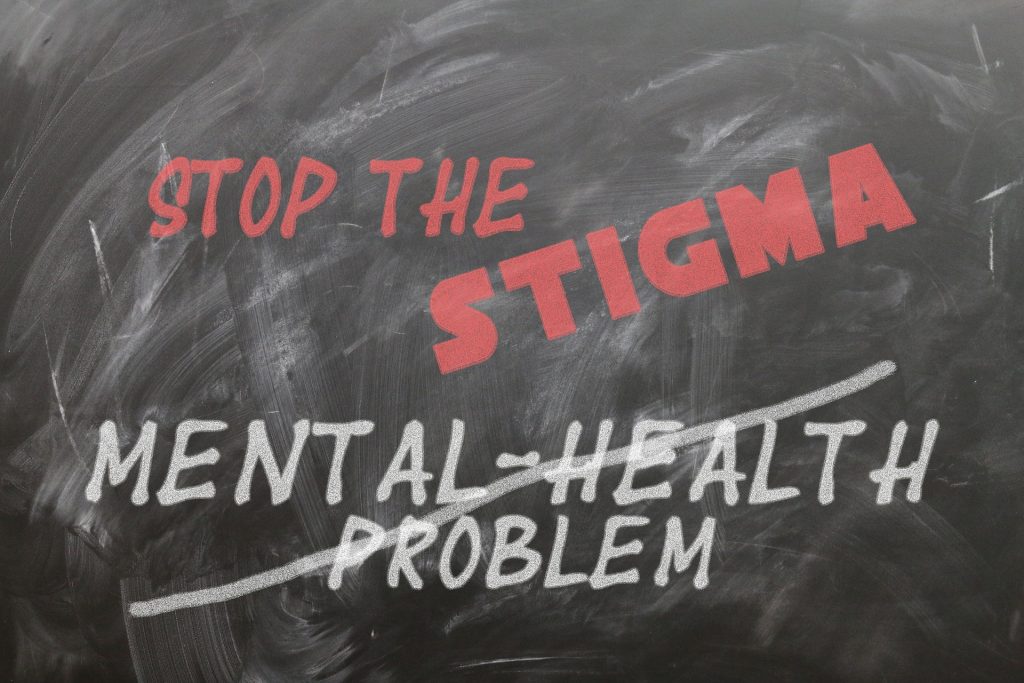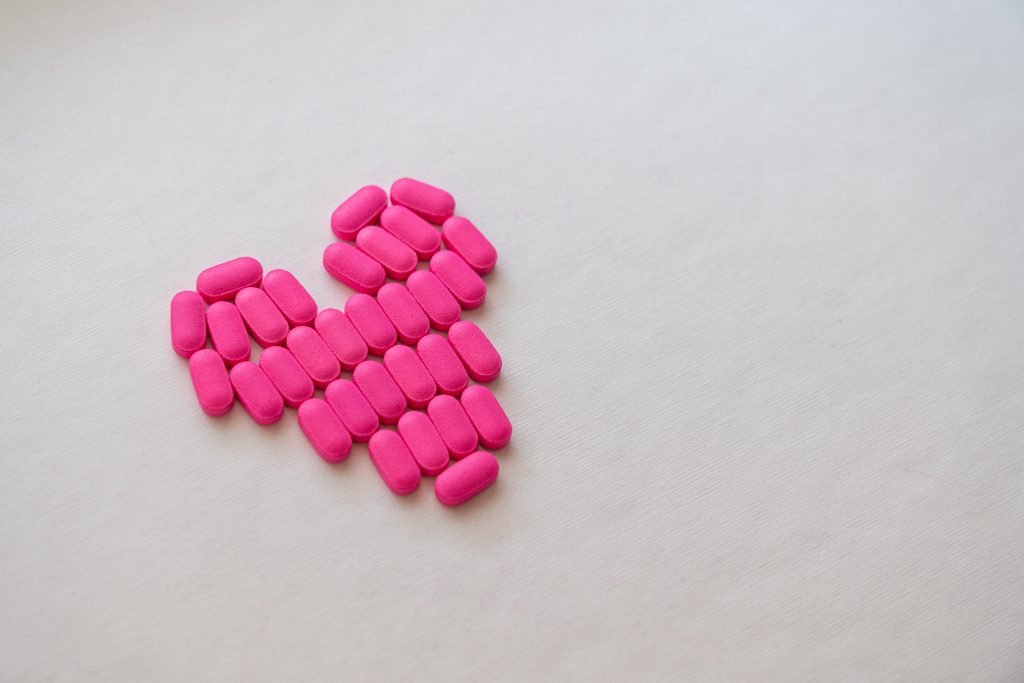The arguments around medication and mental illness can be extremely polarising. I’m not writing this post to sway people or to cast judgement on people’s choices. As with all things, your choice is 100% in your hands and it’s up to you to decide. After all, you know your body best and how you feel about the prospect of medication. Therefore, this post is more of an intellectual exercise based on (some) research studies and my own experience. Rather than an exercise in taking the moral high ground or dictating to anyone.
Please do not make any decisions about your health based on this article and without consulting a healthcare professional.
It’s in Your Hands

The choice to take medication is not only a sensitive topic but a deeply personal one. And that’s how it should stay. It’s no-ones business why you’ve decided to go ahead with it or not. For someone of us it may be a key part of recovery; for others not. Either way, we should never feel that we need to defend our decision. It’s more than okay if we want to explain. And perfectly okay if we don’t. Saying anything along the lines of ‘I’d rather not discuss this’ should be enough for anyone. And if it’s not. Then it’s their problem, not yours.
The only exception to this may be with a healthcare professional who is trying to understand your perspective. And even then, no-one should feel that they are being forced into a treatment option. You’re well within your rights to ask multiple questions and take time to truly understand the implications of the medication offered. It’s also okay to want to get a second or third opinion if you feel like you’re not getting the full story.
Sadly, many of us have heard stories where people have been told they have to accept medication or they can’t be helped. I’m no healthcare professional so I can’t say whether or not this is true. But there are often alternatives which you can and should ask about. Likewise, even if it is the only treatment option or the most successful, it’s okay if you have your own reasons for not wanting to go down that path.
Removing Judgement
For some reason, *ahem* stigma I’m looking at you *ahem* medicating for mental illness continues to be a source of judgement. It’s particularly obvious when you compare it to the way people react if you tell them you were taking medication for physical health conditions. In this case, people may take a polite interest, ask appropriate questions or not react at all. This only highlights that medication is another area where we don’t have parity of esteem.

In the case of mental illness, people seem to think you want their opinion and that they know better. They take it on themselves to moralize and tell you want to do. Even though, for many, they’ve never had the experience. And even if they have struggled with a mental illness or even the same diagnosis it’s likely your experiences will be different. Your life experiences that have led you to this point and will undoubtedly colour your decision have certainly not been the same. In these particular reactions there seems to be a huge lack of empathy.
Mixed Messaging on Medication
Mixed messaging is another problem. There are lots of opinions out there. But very little concrete fact. This makes it difficult to get a clear answer about whether and to what extent medication might be helpful. Some articles suggest medication is a money-making scheme. Other’s that medication should be a last ditch effort as other treatments, for example therapy, can be equally important.
One area where the battle over medication continues to wage is depression. It’s perhaps one of the most contentious areas. Possibly because some studies suggest that exercise can be as effective as medication in treating mild to moderate depression – as stated by the I Have a Black Dog video from the WHO. Or because talking therapies, most often CBT, can have very good outcomes for people. But just because there are other options, doesn’t mean that medication should be disregarded.
Historically, studies researching medication for depression have been patchy but a study from 2018 suggested that the debate was at an end claiming:
Millions more people around the world should be prescribed pills or offered talking therapies, which work equally well for moderate to severe depression, say the doctors, noting that just one in six people receive proper treatment in the rich world – and one in 27 in the developing world. If cancer or heart patients suffered this level of under-treatment, there would be a public outcry, they say.
The Guardian , Feb 2018
So, why is taking medication, specifically for depression, still debated? Possibly this study was not well circulated? Or perhaps stigma still plays a part the success of a wellness industry, apparently the Global Wellness Industry is now worth $4.5 trillion, that encourages us to try other options and take ownership of our mental health. I think it can be incredibly empowering to take decisions, particularly care for your mental health, into your own hands. But we should be aware that it’s not a replacement for further support for those who need or want it.
Sticking With It

As per the article quoted, most people don’t take their medication long enough to feel the full effects. For example, one should take antidepressants consistently for an average of 8 weeks whereas most people take them for 2-4 weeks. The hopelessness when it feels that medication may not be working can be heartbreaking. For many it may be a last attempt to feel better. Or it could mark a stage on a difficult journey to having your needs met and fighting stigma. Only to discover that the light at the end of the tunnel is sufficiently dimmer than expected. This may explain the many stories that one hears that medication doesn’t work. Often these stories are accompanied by sadness and anger which is understandable.
But we also know there are cases where medication hasn’t worked for people. For some it may mean going through various different doses of the same medication or frequent medication reviews and attempts at new prescriptions. All of which is exhausting and disheartening at the best of times. Let alone when you’re battling an already oppressive or difficult array of symptoms.
Looking at depression once more, the awareness of treatment resistant depression is on the rise. It’s thought that between 10-30% of people for whom antidepressants are ineffective might have treatment resistant depression. Of course, this is not the full picture on depression, let alone other conditions. So please do further research from trusted resources.
To Conclude?
I don’t feel there can be a conclusion here. Any conclusion needs to be your own. Based on your own experiences, research, questions asked. And always with a consultation from a healthcare professional. There’s no one size fits all for our health so we need a tailored approach to support.
Hopefully this post has given some food for thought on the subject. Perhaps it’s chimed with your experiences or provided a different perspective. Whatever it’s impact it’s certainly only the start of a conversation rather than an end.
I’d love to hear your thoughts on this subject. Please share them below!

I’ve never been in this position myself but I agree that it should be a completely personal decision tailored to your specific needs. Thanks for sharing your thoughts, it was so interesting to read about it as it’s not an area I know lots about!
Tash – http://www.agirlwithview.co.uk
I love this post! I hadn’t heard anything about the negative effects when I started taking medication – not even from my doctors. I think it’s an important debate to be had.
When I first went on Medication, people kept telling me I shouldn’t. Ultimately it helped me and I don’t regret a thing. Great post
I take medication, and am glad for it, but I don’t blame people for not wanting to. The side effects suck sometimes. Ultimately they have to do what’s best for them. I would say if the side effects are worse than your actual illness it might not be a good fit.
I have never really thought about meditation before! Thank you for sharing this post!
Amber – The Unpredicted Page – https://theunprdictedpage.com
The only form of medication I’ve used are allergy medicines for my seasonal allergies and yes, I do agree that it is a personal decision on what to do with the medicine and how long you need to be on it for. The doctors didn’t give me a specific time of when to stop taking the meds but they just adviced to take it whenever it comes.